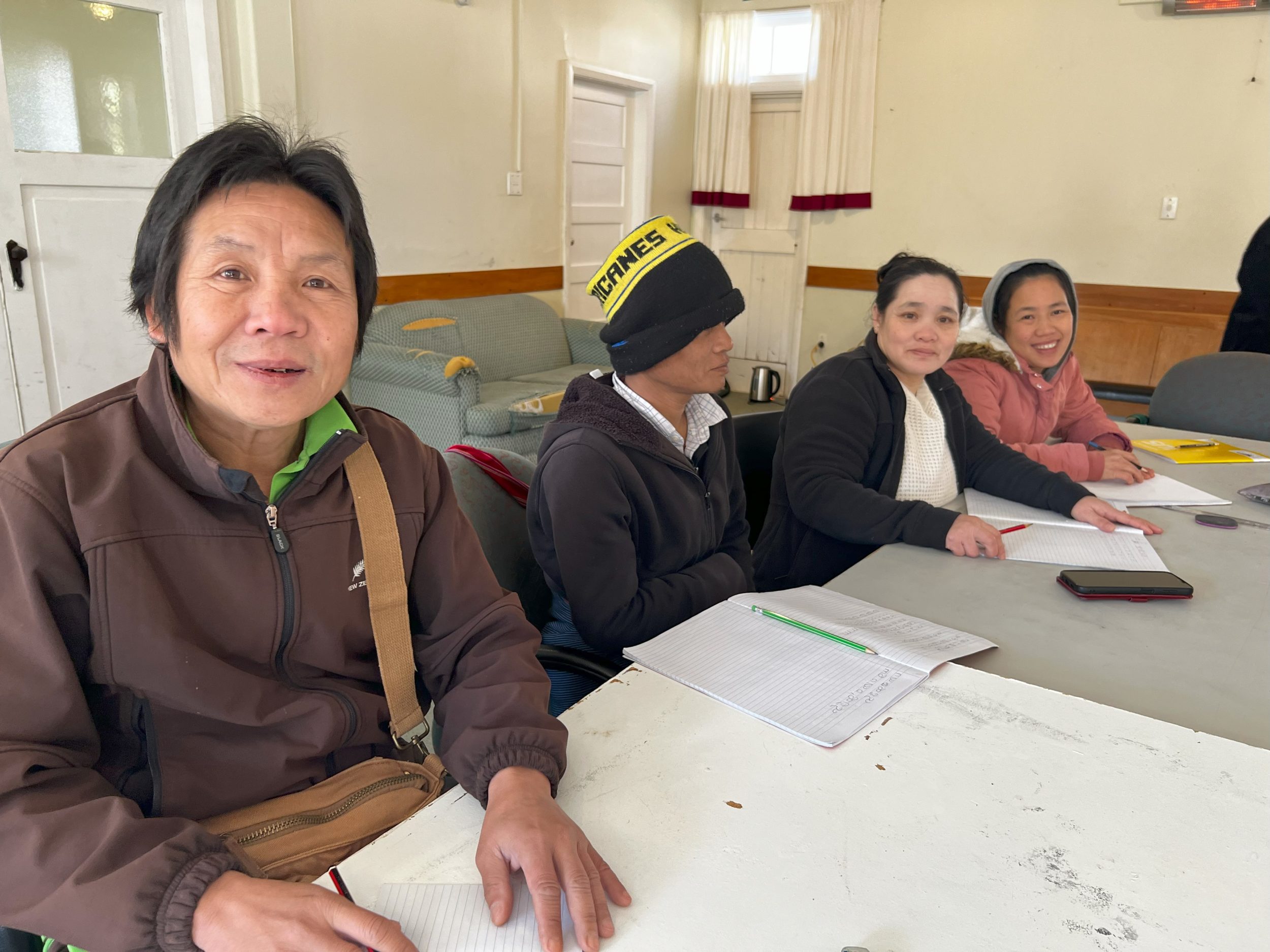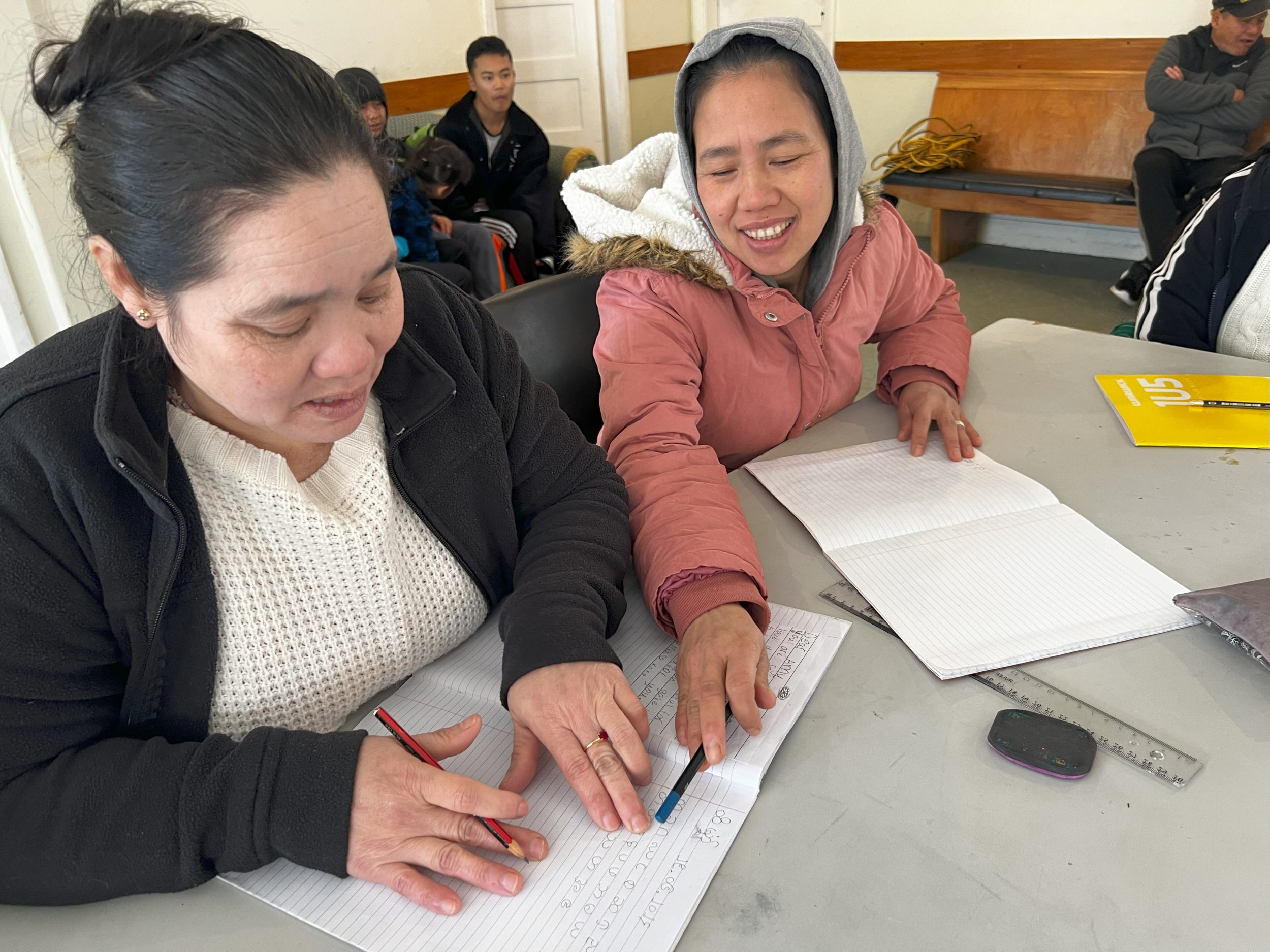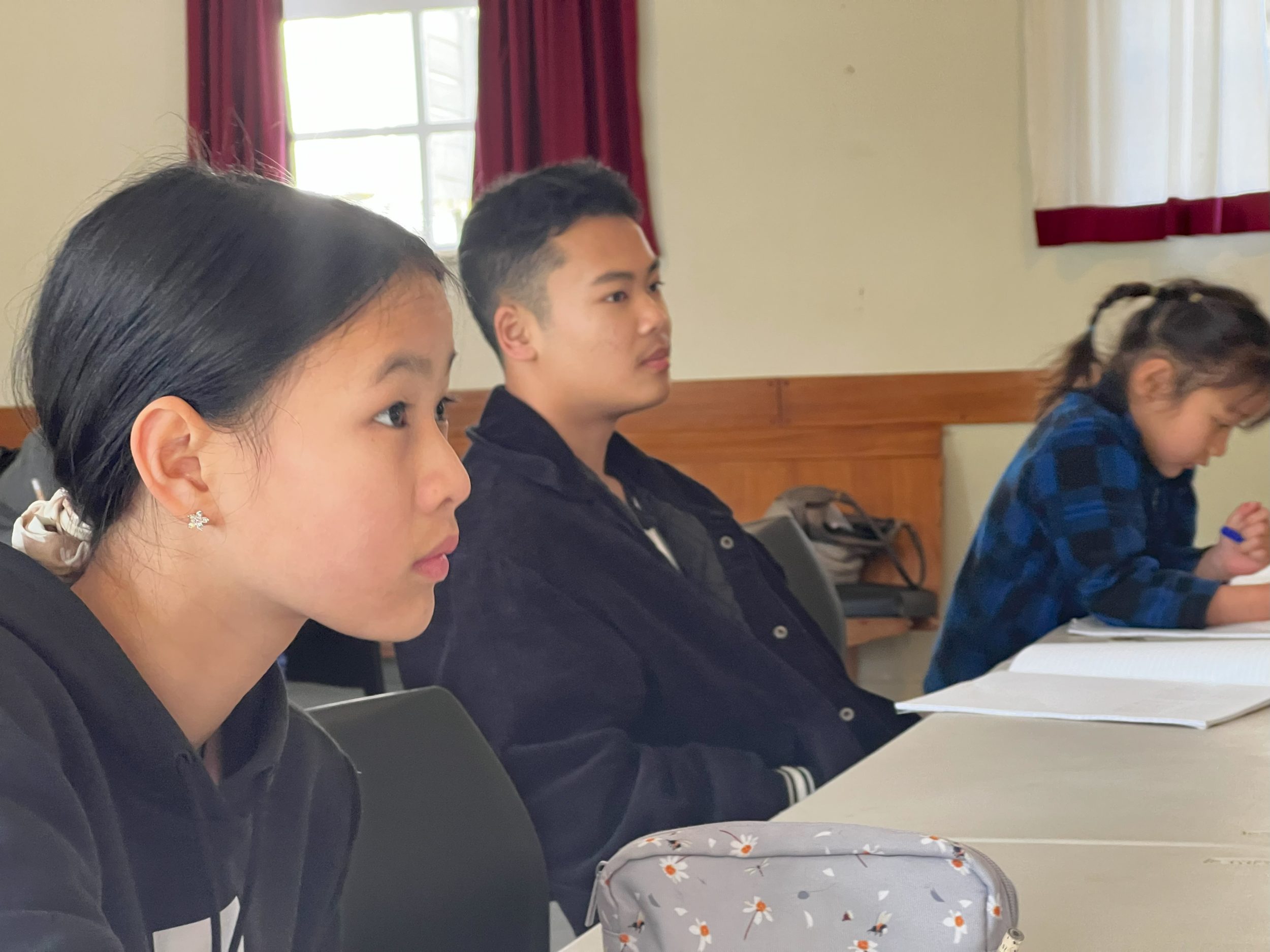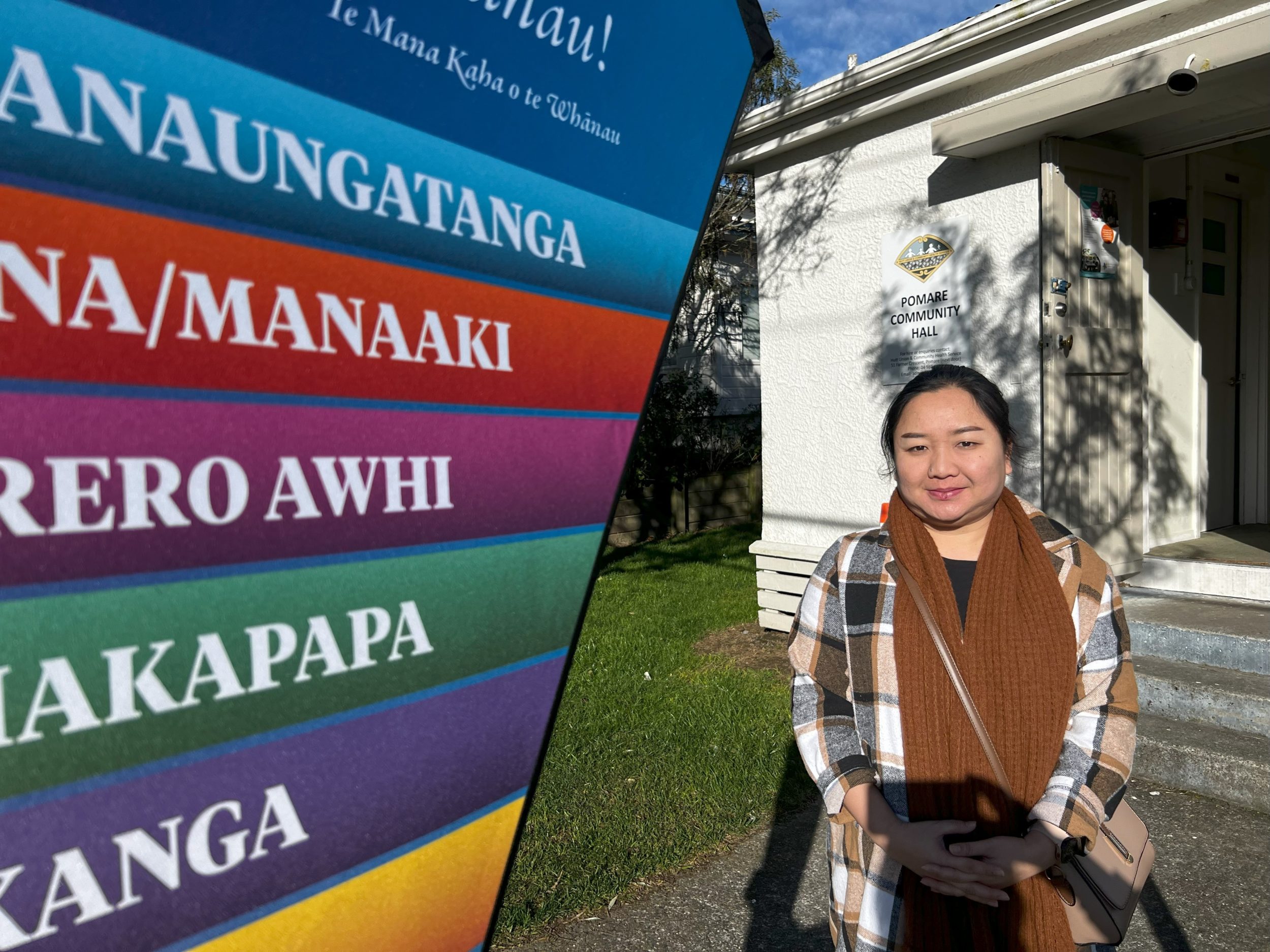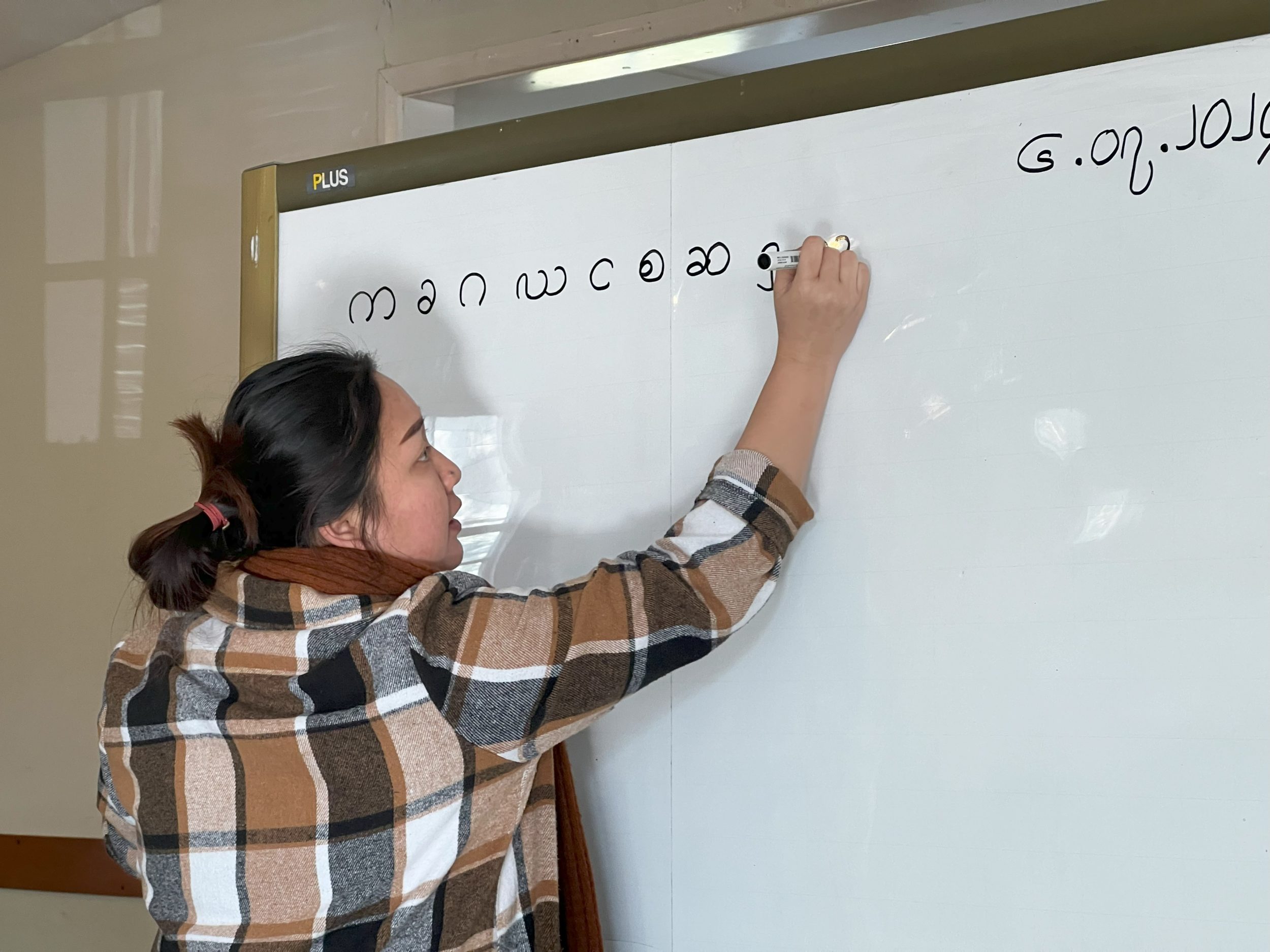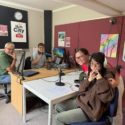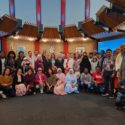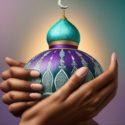Every Saturday morning, a group of former refugees from Myanmar gather at the Pōmare Community House in the Hutt Valley to enjoy each other’s company and shared cultural bonds, while learning to read and write their own language.
This is one of several initiatives run out of Pōmare Community House that supports local refugees to build connections within their community and grow their confidence and skills.
The twenty-eight strong class of adults and children are all members of the Karen ethnic group, one of the indigenous peoples of Myanmar. Some of the children attending have been raised and educated in Aotearoa. English is, in effect, their first language although they understand the Karen spoken at home by their parents.
Their parents, and other more recent members of the 200 strong Karen community in the Wellington region, have typically spent decades in refugee camps in Thailand with limited access to schooling in their own language. However, now they are in Aotearoa New Zealand, they’re jumping at the opportunity to participate in and strengthen their communities by connecting with others through shared experiences and cultural identities.
Multi-lingual teacher shares her skills
The classes are taught by 34-year-old Micky Lay Moo Paw. She was born in a Thai camp and attended a Karen language school there before settling in the Hutt Valley with her family when she was 17.
She also studied English for four years, first at Naenae College and then at Weltec. She’s now returned to Naenae College as a teacher’s aide working with students with special needs.
“I’m fluent in our language because I was brought up in the camp and went to school there but many of the adults who come to these classes came from remote areas of Myanmar and were too old to go to school when they arrived in Thailand.
“The children I teach on Saturday mornings have been bought up here. They go to local schools and speak English. They understand Karen because it’s spoken at home but now, they’re learning to read and write it as well,” says Micky Lay Moo Paw.
Cultural significance for future generations
Micky understands the cultural significance of people maintaining their language for current and future generations of the Karen community. She says there is an immediate and practical aspect to the classes as well, helping recently arrived people from Myanmar to connect and feel like they belong and are connected in their new country.
“Some of my students want to be better translators to help Karen people arriving in this country.”
Strong cultural identity and a sense of belonging are known to support whānau and communities to be strong, safe, and resilient. Pōmare Community House provides a welcoming space for the Karen people and other communities to connect, grow their skills and garner strength from their distinct cultural identities. It also helps these locals to forge strong bonds within their wider Hutt Valley community.

